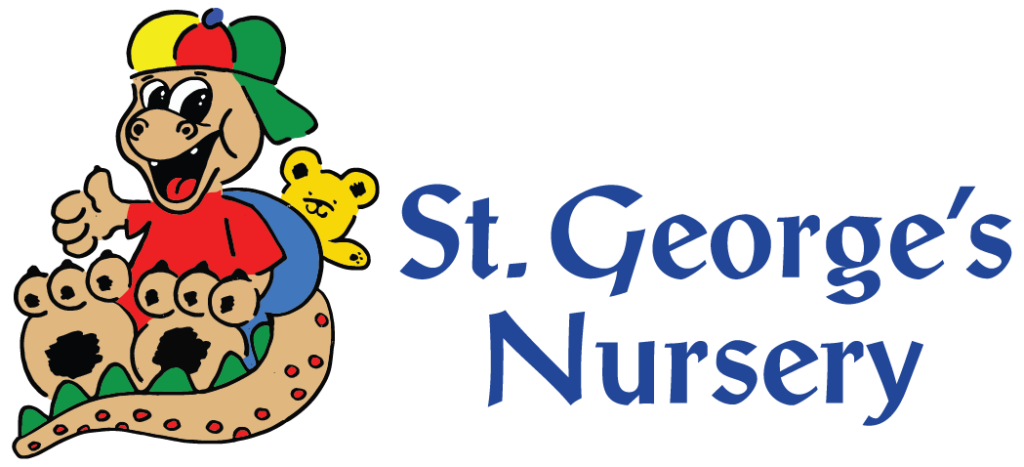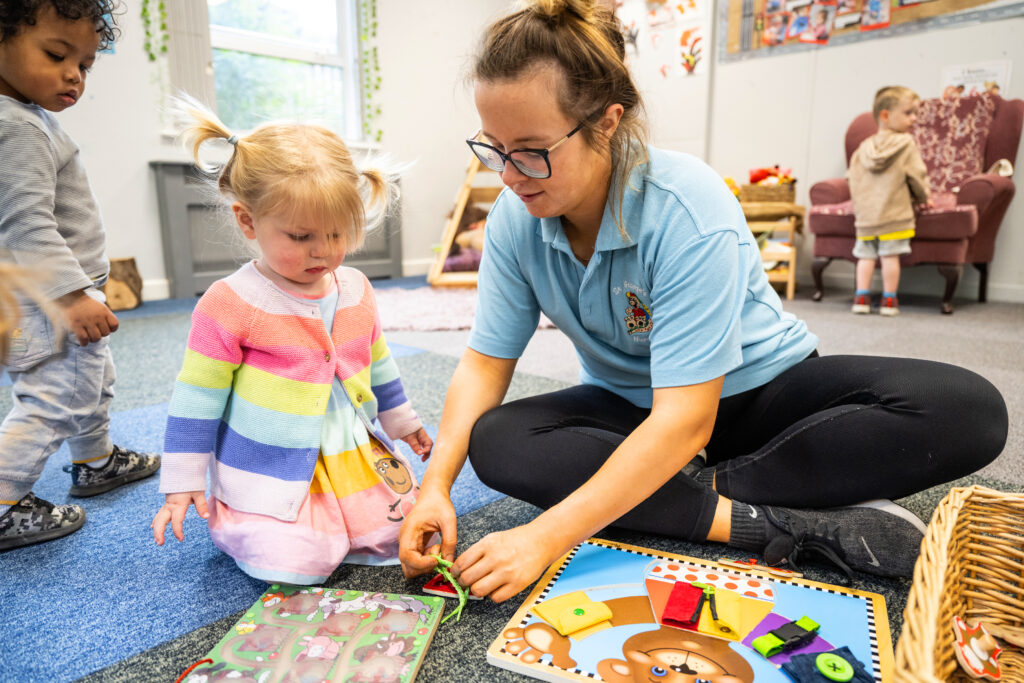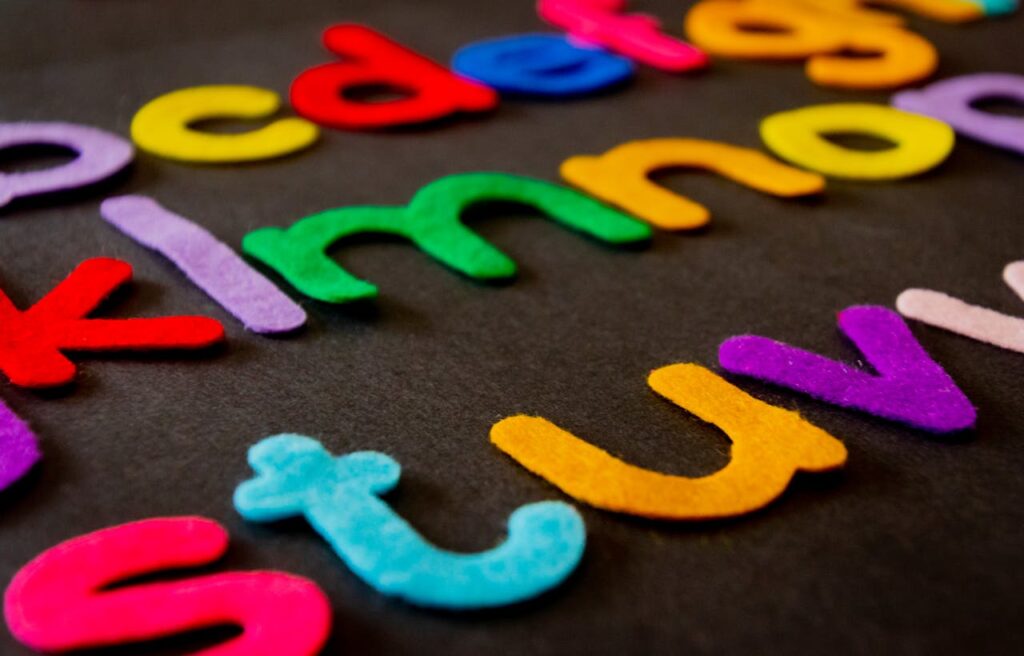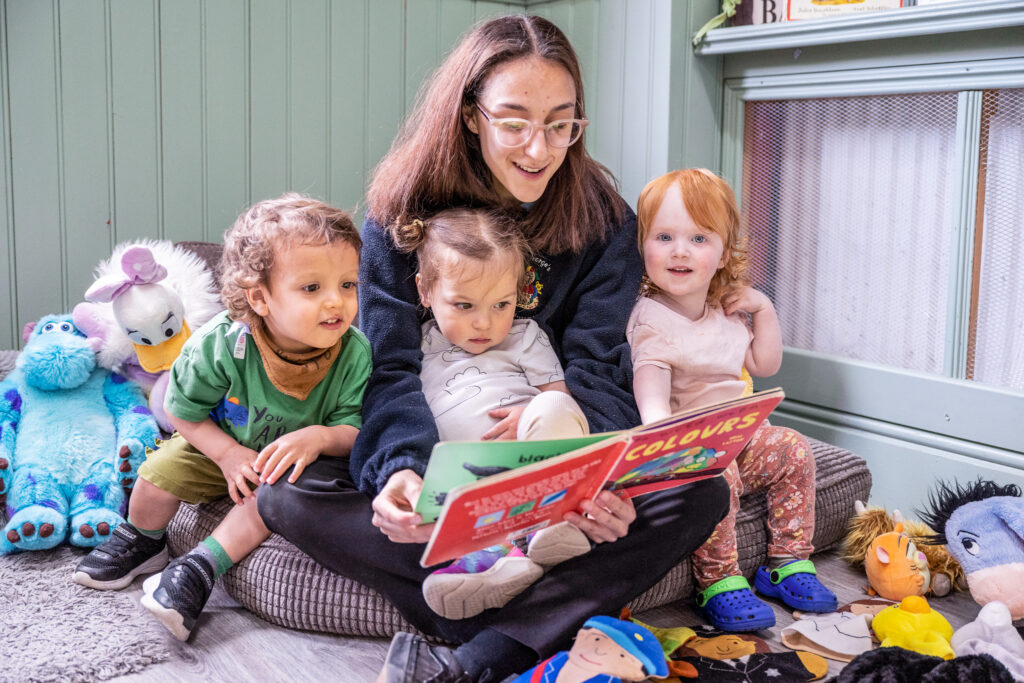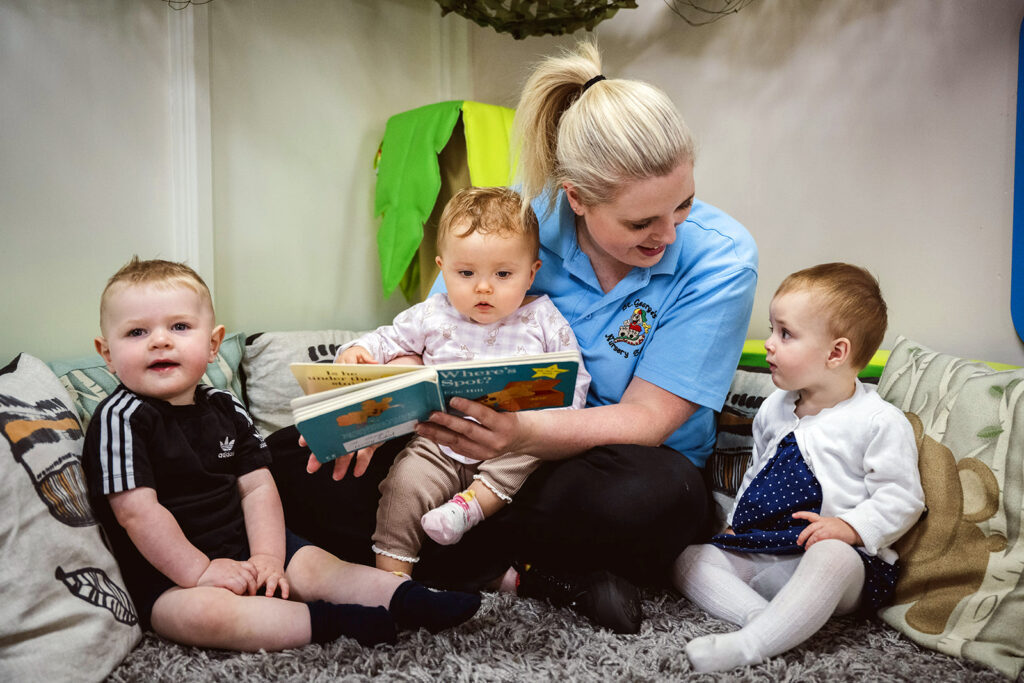In today’s fast-paced world, the pressure to excel academically often overshadows the joy of childhood. However, research has shown time and again that the most effective way for young children to learn and grow is through play. This is the cornerstone of our approach here at St. George’s Nursery.
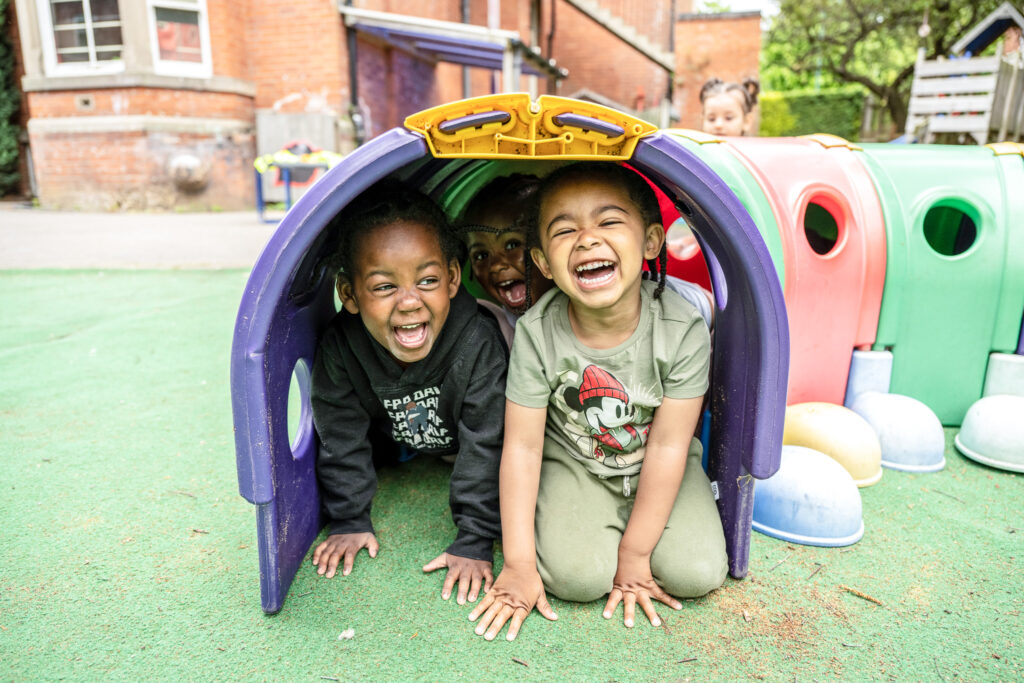
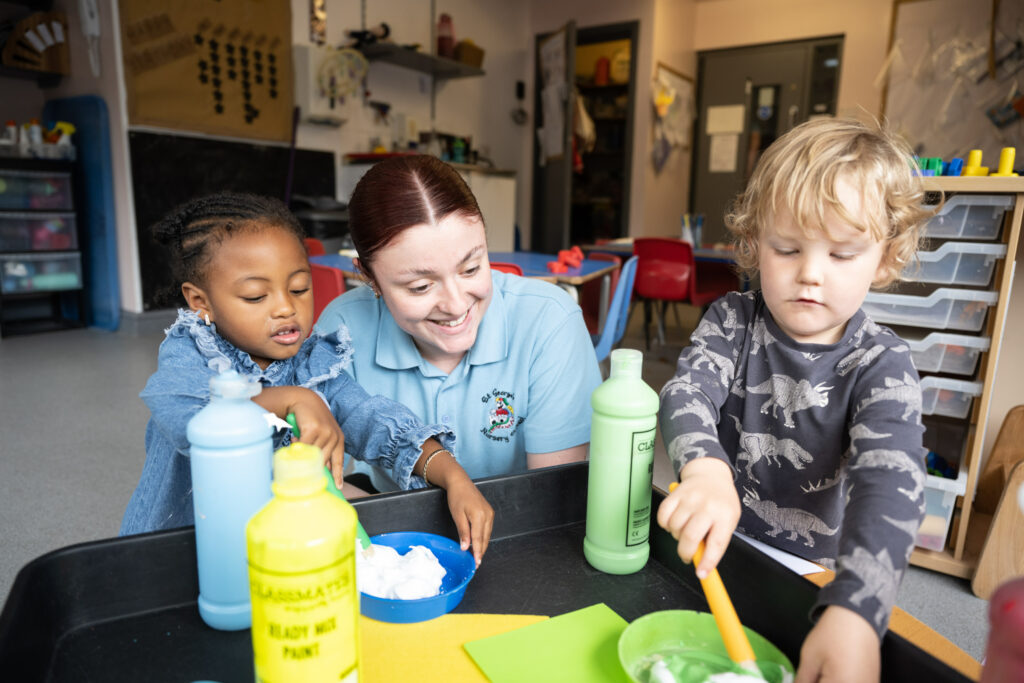
Why do we place such a strong emphasis on play-based learning? Because we understand that play is not just done for fun—it’s the foundation upon which all future learning is built. In the bustling rooms of our nursery, you’ll find children engaged in numerous activities, from building towering block structures to creating masterpieces with paint and clay, from dressing up as their favourite storybook characters to embarking on imaginary adventures to far-off lands.
Play-based learning thrives when children have the freedom, opportunity, and independence to participate in activities and interact with resources that hold personal significance and capture their interest.
As parents, we want you to know the importance of play-based learning, highlighting its role in nurturing cognitive, social, emotional, and physical development, which lays the foundation for lifelong achievement. At St. George’s Nursery, play is more than just fun and games—it’s the cornerstone of early childhood education. Here’s why:
Building a Strong Foundation:
The early years are a critical period of brain development, and play provides the perfect environment for young minds to absorb a lot of information. Whether it’s stacking blocks, playing dress-up, or engaging in sensory exploration, every playful moment lays the foundation for future learning.
Play-based learning helps children in developing a favourable & positive outlook and attitude to education.
Fostering Creativity and Imagination:
In a world that often prioritises academic achievement, it’s easy to overlook the importance of creativity. Yet, creativity is the fuel that drives innovation and problem-solving. Through imaginative play, children learn to think outside the box, experiment with new ideas, and unleash their boundless imagination.
Developing Social Skills:
Nursery is often a child’s first introduction to a social environment outside the family. Play-based learning activities provide valuable opportunities for children to interact with others, learning crucial social skills such as cooperation, sharing, and empathy. These early interactions lay the groundwork for healthy relationships throughout life.
Encouraging Exploration and Curiosity:
Have you ever watched a child completely engrossed in exploring their surroundings? That sense of wonder and curiosity is what drives learning. Play-based activities encourage children to explore the world around them, ask questions, and seek answers—a habit that will serve them well in their academic journey and beyond.
Promoting Physical Development:
From running and jumping to fine motor skills like grasping and manipulating objects, play-based learning activities support all aspects of physical development. Whether it’s climbing on playground equipment or engaging in messy art projects, children develop strength, coordination, and body awareness through active play.
Making Learning Fun:
Perhaps the most important aspect of play-based learning is that it makes learning fun! When children are engaged and enjoying themselves, they’re more likely to retain information and develop a lifelong love of learning. By incorporating play into the nursery curriculum, educators create an environment where children are excited to come to school each day.
At St. George’s Nursery, we employ a diverse range of play-based learning categories to cater to every child’s developmental needs:
Sensory & Creative Play:
Through activities that engage the senses, like exploring textures, scents, and sounds, children develop their sensory processing skills and enhance their cognitive abilities. Encouraging artistic expression through painting, drawing, and crafting fosters creativity, imagination, and self-expression in children.
Physical Play:
Active play, such as running, jumping, and climbing, not only promotes physical health and coordination but also teaches children important concepts like balance and spatial awareness.
Heuristic Play:
Providing children with open-ended materials like natural objects or loose parts encourages exploration, experimentation, and problem-solving in a self-directed manner.
Adult-Initiated Play:
Structured activities led by educators introduce children to new concepts, skills, and experiences in a guided and supportive environment.
Child-Initiated Play:
Allowing children to choose their activities and lead their play fosters independence, self-confidence, and decision-making skills while honouring their individual interests and preferences.

At St. George’s Nursery, we understand the profound impact that play-based learning can have on a child’s development. That’s why we’ve designed our curriculum to prioritise hands-on, interactive experiences that ignite curiosity, foster creativity, and lay the foundation for a lifetime of learning. These various play-based learning approaches ensures that every child receives a holistic and enriching educational experience tailored to their unique developmental journey.

A Parent’s Guide to Childcare Lingo: Clarifying Nursery Terms
When your little one begins their journey into daycare, preschool, or a day nursery, it can sometimes feel like you’ve entered a world with its

Understanding the Differences: School-Based Nurseries, Preschools, and Private Nurseries
Deciding on the right childcare can be a minefield for parents, so many things to be taken into consideration and agreed by all involved. How to recognise a good setting for your child, needs a lot of time and consideration.
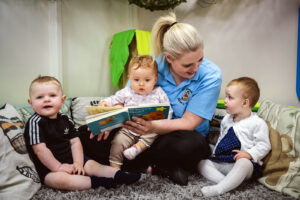
Early Years Education: Building Strong Foundations for Life
Early years education is a cornerstone of lifelong learning, and its importance cannot be overstated. As highlighted in a recent report by OFSTED, Best Start
